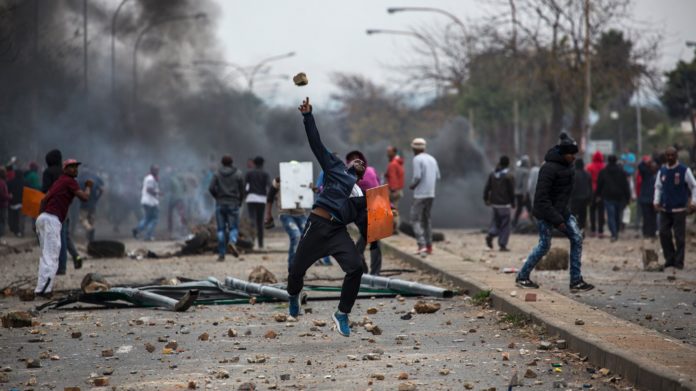
A JOINT business and government effort to improve socio-economic conditions in the Northern Cape’s mining district is the first of a national effort that will be rolled out to other provinces.
It can’t come soon enough for KwaZulu-Natal where community violence culminated with the suspension of Richards Bay Minerals (RBM), a mineral sands company in which Anglo-Australian group Rio Tinto has a 74% stake.
RBM said on Wednesday it had declared force majeure over customer contracts following mine invasions in June by a mob that burned machinery. A month before, the company’s GM, Nico Swart, was shot dead while driving to work. It was a tragedy that would “… forever tarnish our country’s reputation,” according to a Minerals Council statement.
The council added that continued acts of lawlessness, much of which had been at mining company premises, was sending the worst possible message about South Africa’s investment climate: basically, that the country’s security forces have lost the plot.
Alex Khumalo, head of social performance at the Minerals Council, says the ‘Impact Catalyst Northern Cape’ project – as the public-private partnership is named – intends to assist small- to medium-term enterprise development and help with the diversification of local economies.
On a broader level, however, Khumalo thinks the various spheres of government ought to be reprioritising spending trends in order to support the Impact Catalyst initiative. “For example, a critical area for consideration by the government could be the reprioritisation of policing resources, including human capabilities through training, assets such as vehicles, enhancing intelligence service, etcetera,” he said.
The Northern Cape province has recent experience of deficits in policing. During attacks at Orion Minerals’ premises near Prieska, a handful of police stood by while hundreds of community members – stirred by criminal elements – marched by.
Errol Smart, CEO of Orion Minerals, said “a mafia” was at large in his district. CEOs throughout the mining sector had complained of the same, wherever they happened to be operating, he said.
Local election jockeying is being blamed, but the deeper problem lies with a lack of government competence to budget properly, structure, and manage through the structure. Macro-economic distress is an overlay, corruption is an aggravating circumstance.
KwaZulu-Natal doesn’t have a significant mining footprint compared to the Northern Cape, but it’s able to grab its fair share of headlines. In October last year, environmental activist Fikile Ntshangase was murdered for opposing the expansion of the Somkhele coal mine near Mtubatuba.
As for RBM, there’s uncertainty whether it is feasible to press ahead with its $463m Zulti South expansion. RBM made an R8bn economic contribution to South Africa last year. Failing to create conditions for the mine’s life extension is far from the economic stimulus the Cyril Ramaphosa government is aiming at.











